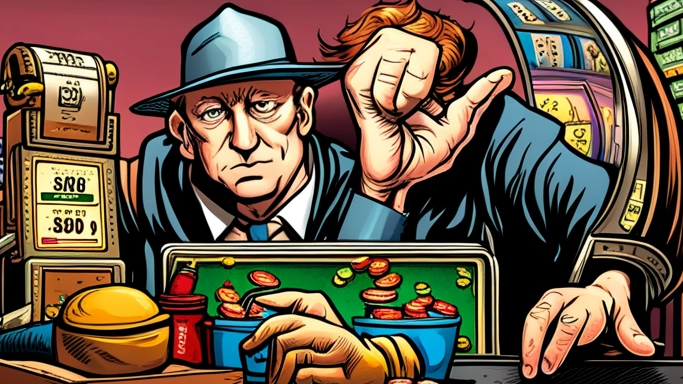4 Ways to get out of the trap of Random Rewards

Random rewards in trading, similar to the allure of slot machines for gamblers, can lead traders to make impulsive decisions and disregard trading plans. To overcome this, traders should prioritize discipline, focus on the trading process, and avoid being swayed by occasional wins or losses.
In the world of trading, there’s a psychological trap called random rewards that can trip up even the most seasoned traders. It’s like the excitement gamblers feel when they play slot machines, and it can lead traders to make impulsive decisions, trade without a plan, and ignore important trading rules. In this article, we’ll explore the concept of random rewards from a trader’s point of view and discuss the importance of disciplined trading practices to avoid falling into this trap.
Understanding Random Rewards:
Random rewards happen when traders experience inconsistent or unpredictable outcomes from their trades. Instead of seeing clear cause-and-effect patterns between their actions and results, traders encounter occasional wins or losses that seem random or arbitrary. These occasional wins can be addictive, making traders believe that the next trade will bring them a big win, even if they’ve been losing so far. It’s similar to when gamblers think their luck is about to change after a series of losses.
The Gambler’s Fallacy in Trading:
Imagine a trader who has been losing money in several trades. Despite the losses, they keep hoping that the next trade will turn their luck around. It’s like the excitement gamblers feel when they pull the lever on a slot machine, hoping for a big win. This feeling makes traders act impulsively, believing that they’re just one trade away from a random reward.
As time goes on, the lure of random rewards can cloud a trader’s judgment and lead them away from their trading plan. Instead of carefully analyzing the market and sticking to their strategies, they start making impulsive trades, hoping for a lucky break. This can lead to overtrading, where traders buy and sell too frequently, thinking that every new trade might bring them a big profit.
The Role of Confirmation Bias:
Confirmation bias makes the influence of random rewards even stronger. When traders do have occasional wins, they tend to believe it’s because of their skills or strategies. This bias reinforces their confidence and makes them believe they have control over their success. They become less likely to question their decisions, and this can lead to irrational trading behaviors.
Breaking the Cycle:
To avoid falling into the trap of random rewards, traders need to follow disciplined practices and prioritize long-term goals. Here are some strategies to help break the cycle:
1. Create a solid trading plan: A well-structured trading plan should include clear entry and exit points, risk management strategies, and guidelines for executing trades. By relying on a systematic approach instead of impulsive actions, traders can minimize the influence of random rewards.
2. Focus on the process, not just outcomes: Instead of getting fixated on individual trade outcomes, concentrate on following your plan and executing trades consistently. By emphasizing a reliable process, you’ll achieve more consistent results over time, regardless of occasional random rewards.
3. Manage emotions and stay disciplined: Be aware of the emotional ups and downs associated with random rewards. Avoid making impulsive decisions driven by short-term excitement or disappointment. Stay disciplined and focused on your trading plan throughout your journey.
4. Learn from every trade: Evaluate your trades objectively, whether they’re winners or losers. Look for patterns and trends that reflect the effectiveness of your strategy, rather than attributing everything to random rewards. This analytical approach will help you refine your trading methodology.
Random rewards pose a challenge for traders, enticing them with occasional wins like the allure of a slot machine. It’s important to recognize the psychological impact of random rewards and take proactive steps to minimize their influence. By following disciplined practices, focusing on process rather than outcomes, and managing emotions, traders can break free from the grip of random rewards and navigate the markets with greater clarity and confidence.

